Africa
Exiled South African ambassador calls for U.S. ties reset

The South African ambassador who was expelled from the United States and declared persona non grata by the Trump administration was given a hero’s welcome on his return home Sunday, when hundreds of supporters gathered at an airport and sang songs praising him. The crowds at Cape Town International Airport surrounded Ebrahim Rasool and his wife Rosieda as they emerged in the arrivals terminal in their hometown, and they needed a police escort to help them navigate their way through the building. Rasool said it was important for South Africa to fix its relationship with the U.S. after President Donald Trump punished the country and accused it of taking an anti-American stance even before the decision to expel Rasool.
The U.S. president issued an executive order last month cutting all funding to South Africa, alleging its government is supporting the Palestinian group Hamas and Iran, and pursuing anti-white policies at home. “We don’t come here to say we are anti-American,” Rasool said to the crowd. “We are not here to call on you to throw away our interests with the United States.” They were the ex-ambassador’s first public comments since the Trump administration declared him persona non grata over a week ago, removed his diplomatic immunities and privileges, and gave him until this Friday to leave the U.S. It is highly unusual for the U.S. to expel a foreign ambassador. Rasool was declared persona non grata by U.S. Secretary of State Marco Rubio in a post on X on March 14. Rubio said Rasool was a “race-baiting politician” who hates the U.S. and Trump.
Rubio’s post linked to a story by the conservative Breitbart news site that reported on a talk Rasool gave on a webinar organized by a South African think tank. In his talk, Rasool spoke in academic language of the Trump administration’s crackdowns on diversity and equity programs and immigration and mentioned the possibility of a U.S. where white people soon would no longer be in the majority. “The supremacist assault on incumbency, we see it in the domestic politics of the U.S.A., the MAGA movement, the Make America Great Again movement, as a response not simply to a supremacist instinct, but to very clear data that shows great demographic shifts in the U.S.A. in which the voting electorate in the U.S.A. is projected to become 48% white,” Rasool said in the talk.
On his return home Sunday, he said he stood by those comments, and characterized them as merely alerting intellectuals and political leaders in South Africa that the U.S. and its politics had changed. He also said that South Africa would resist pressure from the U.S. — and anyone else — to drop its case at the International Court of Justice accusing Israel of genocide against Palestinians in Gaza. The Trump administration has cited that case against U.S. ally Israel as one of the reasons it alleges South Africa is anti-American.
The Breitbart story Rubio cited when announcing Rasool’s expulsion was written by South African-born senior editor-at-large Joel Pollak, who is Jewish and an ally of the Trump administration. Pollak is also a contender to be the new U.S. ambassador to South Africa, according to South African media. Some of the supporters welcoming Rasool, who is Muslim, home to Cape Town waved Palestinian flags and chanted “free Palestine.” “As we stand here, the bombing (in Gaza) has continued and the shooting has continued, and if South Africa was not in the (International Court of Justice), Israel would not be exposed, and the Palestinians would have no hope,” Rasool said. “We cannot sacrifice the Palestinians … but we will also not give up with our relationship with the United States. We must fight for it, but we must keep our dignity.”
Africa
UN warns of worsening violence and mass displacement in Haiti, in new report
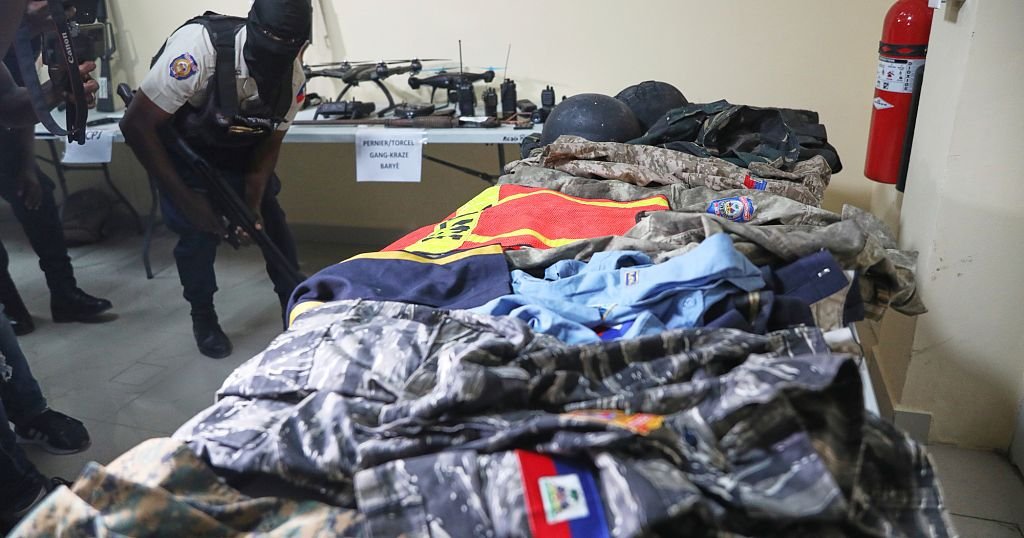
Violence in Haiti is escalating sharply, with gang activity reaching new levels across the country. According to a new report from the United Nations, the surge began in October 2024 and has continued through June of this year. While Port-au-Prince remains a hotspot, the UN highlights that the chaos is now spreading rapidly into rural regions, where state authority is almost entirely absent.
“The escalating gang violence outside Port-au-Prince, where the presence of the state is extremely limited, has claimed over 1,000 lives and forced hundreds of thousands to flee since October 2024,” said Ravina Shamdasani, spokesperson for the Office of the UN High Commissioner for Human Rights.
The report also notes a troubling rise in human rights abuses committed by so-called self-defence groups. These armed civilian groups initially emerged in response to gang violence but are now implicated in growing numbers of violations themselves. The UN is urging urgent international intervention.
“The human rights violations and abuses that we have documented are further evidence of why Haiti and the international community urgently need to step up to end this violence,” Shamdasani added.
According to the UN, a mass killing in Pont-Sondé in the Lower Artibonite region in October 2024 marked a major turning point. What followed was a wave of brutal attacks, displacements, and growing instability.
In one of the most striking examples, the town of Mirebalais in the Centre department was completely emptied. All 100,000 residents fled as violence surged earlier this year.
The UN continues to call for coordinated international action to restore security and protect civilians, warning that without intervention, Haiti’s humanitarian crisis will only deepen.
Africa
Uganda reopens border with M23-held eastern DRC
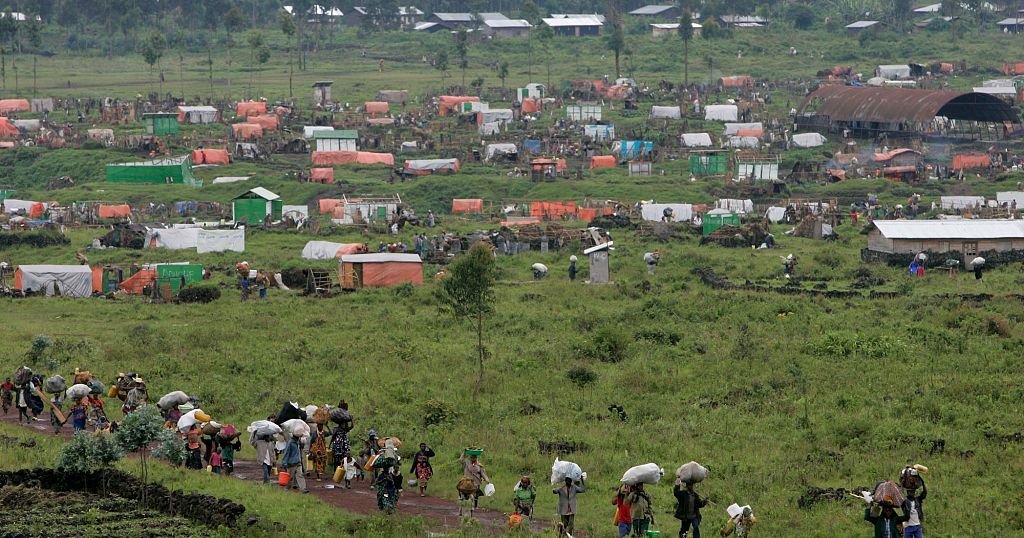
Six months after closing key border crossings due to rebel advances, Uganda has reopened its border with the Democratic Republic of Congo (DRC). The move comes after the seizure of Goma by the M23 rebel group, which led to the shutdown of crossings at Bunagana and Ishasha in Congo’s North Kivu province.
Ugandan military assistant Chris Magezi confirmed the reopening on social media, stating that it was ordered directly by President Yoweri Museveni. Magezi also noted that those responsible for initially closing the crossings and disrupting trade between the two communities will be investigated.
The decision follows the recent signing of a peace agreement in Washington, where Rwanda and the DRC agreed to support future talks between the M23 rebels and the Congolese army.
The M23 rebel group, largely made up of ethnic Tutsis, resumed its offensive in late 2021. Fighting intensified significantly this year, with the group capturing large areas of eastern Congo, including the strategic city of Goma.
The Congolese government has repeatedly accused Rwanda of supporting M23 with weapons and troops. These claims have been backed by the United States, which has cited credible intelligence reports. Rwanda has denied any direct involvement with the rebel group.
With the border reopened and international diplomacy underway, regional dynamics are shifting. The success of upcoming peace talks will depend heavily on continued pressure from international stakeholders and a willingness among parties to compromise.
Africa
Somalia-Ethiopia tensions escalate as port deal talks stall
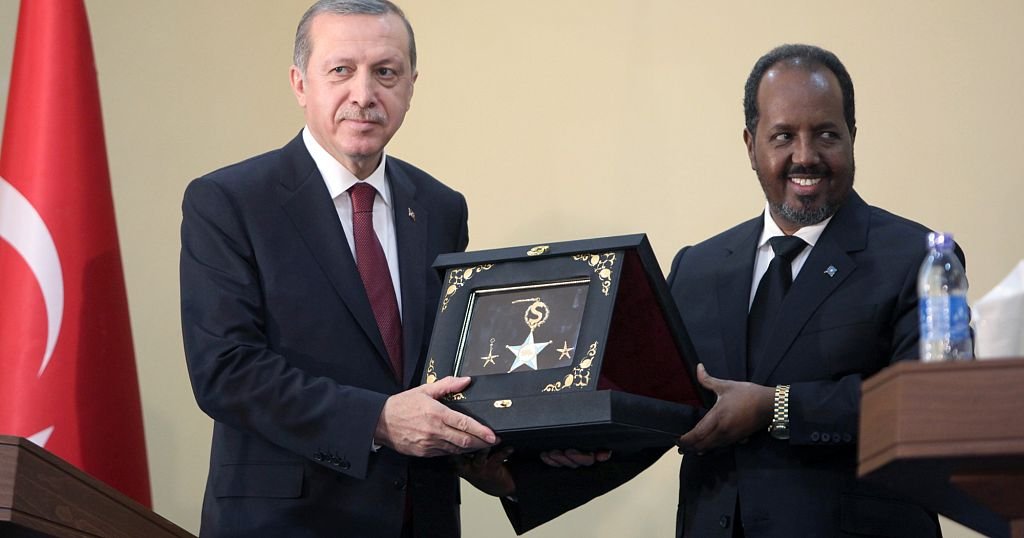
Turkish President Recep Tayyip Erdoğan hosted Somali President Hassan Sheikh Mohamud in Ankara on Friday for a high-level meeting focused on strengthening bilateral relations, particularly in the areas of counterterrorism and regional cooperation.
The talks were held behind closed doors at the Presidential Complex, according to a statement released by Türkiye’s Communications Directorate.
The meeting comes as tensions between Somalia and Ethiopia escalate as mediation efforts over a controversial port access agreement stall. The talks, brokered by Turkey since February 2024, aim to resolve a dispute triggered by a deal signed on January 2024 between Ethiopia and the self-declared Republic of Somaliland.
Under the agreement, Ethiopia would gain access to a 20-kilometre stretch of Somaliland’s coastline. In exchange, Somaliland would receive support for its long-sought international recognition. Somalia, which considers Somaliland part of its territory, strongly opposes the deal, calling it a violation of its sovereignty.
Mogadishu has launched a diplomatic campaign to block the agreement and has appealed to the United Nations for intervention.
On July 3, Ethiopian Prime Minister Abiy Ahmed reiterated his government’s position, describing sea access as essential for Ethiopia’s economic development. His comments echoed earlier statements from January that were strongly condemned by Somali officials.
Somalia again denounced the deal, referring to it as a “land grab,” and urged the international community to take action.
The standoff has attracted the attention of regional powers. Earlier this week, Egyptian President Abdel Fattah el-Sisi met with Somali President Hassan Sheikh Mohamud. During the meeting, Egypt pledged to strengthen military cooperation and support Red Sea maritime security.
No breakthrough has been reached in the Turkey-led negotiations, and no further rounds of talks have been scheduled.
-

 Asia4 days ago
Asia4 days agoA torpedoed US Navy ship escaped the Pacific in reverse, using coconut logs. Its sunken bow has just been found
-
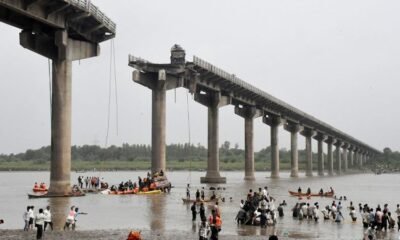
 Asia4 days ago
Asia4 days agoGujarat state: Bridge collapse kills 9 in India
-

 Lifestyle5 days ago
Lifestyle5 days agoRemoving shoes to board a plane may be a thing of the past
-
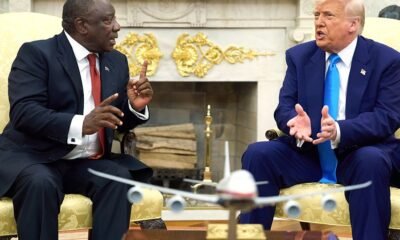
 Africa5 days ago
Africa5 days ago30% on South African imports: Ramaphosa hits back at new Trump tariffs
-

 Europe4 days ago
Europe4 days agoExtreme heat is a killer. A recent heat wave shows how much more deadly its becoming as humans warm the world
-

 Europe4 days ago
Europe4 days agoTrump promised 200 deals by now. He’s gotten 3, and 1 more is getting very close
-

 Lifestyle5 days ago
Lifestyle5 days agoFaith-based camps like those hit by Texas floods are rite of passage for many
-

 Lifestyle3 days ago
Lifestyle3 days agoHealthy workday snacks include a smart mix of energy-boosters




